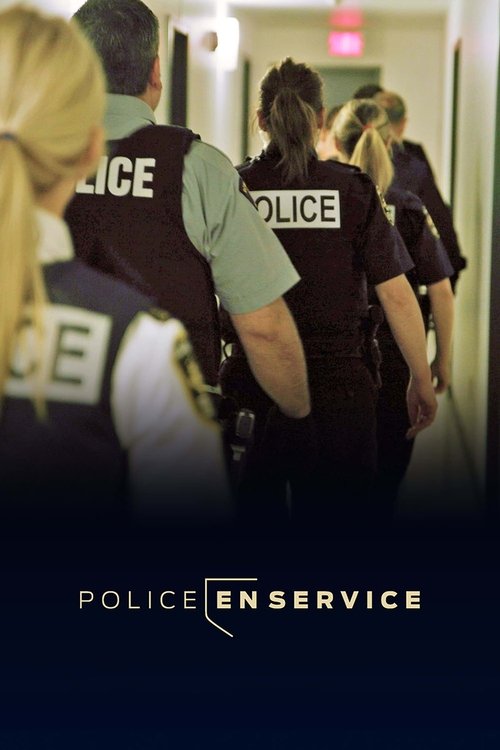
Ask Your Own Question
What is the plot?
The episode opens with the remaining contestants arriving at the MasterChef Québec kitchen, visibly tense as they are informed that tonight's challenge will take place in a fully booked restaurant, with real customers expecting a high-quality dining experience. The judges--Martin Picard and Stefano Faita--explain that the contestants will be divided into two teams, each led by a captain chosen by the judges based on their previous performances. The captains are tasked with organizing their brigade, assigning roles, and ensuring smooth service under intense pressure.
Each team quickly huddles to strategize. The first captain, feeling the weight of responsibility, assigns the most experienced cooks to key stations--entrées, mains, and desserts--while the second captain opts for a more collaborative approach, encouraging input from all team members. Both teams review their menus, which feature a mix of classic and innovative dishes designed to impress both the judges and the guests. The kitchen is a flurry of activity as ingredients are prepped, sauces are reduced, and garnishes are meticulously arranged.
As the restaurant doors open, customers begin to arrive, and the pressure mounts. The first team's entrées go out smoothly, receiving positive feedback from the early tables. However, the second team encounters a setback when one of their appetizers is sent back for being under-seasoned. The captain quickly tastes the dish, agrees with the feedback, and personally re-seasons and re-plates it, ensuring it meets the standard before it goes out again. This moment of crisis strengthens the team's resolve, and they rally to recover.
Midway through service, the first team faces their own challenge: a main course is delayed because a key component is overcooked. The captain makes the decision to start the dish from scratch, communicating clearly with both the kitchen and the front-of-house to manage customer expectations. Meanwhile, the second team's desserts are coming together beautifully, with one contestant improvising a last-minute garnish that earns praise from both customers and judges.
As the evening progresses, the energy in the kitchen becomes increasingly frantic. Both teams are tested by a sudden rush of orders, forcing them to prioritize, communicate, and support each other under extreme time pressure. Contestants who had previously struggled with confidence begin to find their rhythm, while others who had been strong performers start to show signs of fatigue. The judges observe closely, taking notes on leadership, teamwork, and the quality of each dish.
Near the end of service, a critical error occurs when one team's dessert is accidentally dropped on the floor just as it is about to be plated. The team quickly regroups, with the captain delegating tasks to remake the dessert while another contestant steps in to help with plating. The judges notice the composure and teamwork displayed during this crisis, which becomes a defining moment for the team.
Once the last dishes are served and the customers leave, the judges deliberate. They praise both teams for their resilience and creativity, but highlight specific moments where leadership and adaptability made the difference. The judges then announce which team performed better overall, based on the quality of the food, the efficiency of service, and the ability to handle pressure.
The episode concludes with the losing team being told that one of their members will be eliminated. The judges ask each contestant to explain why they should stay, focusing on their contributions during the service. After a tense deliberation, the judges announce the name of the contestant who will be leaving the competition, marking the end of another high-stakes episode of MasterChef Québec.
What is the ending?
At the end of MasterChef Québec Season 3, Episode 12, the contestants face a high-pressure service in a fully booked restaurant where they must flawlessly reproduce a masterclass dish under the supervision of their team captains. The episode concludes with the judges evaluating the teams' performances, highlighting the intense effort and teamwork, but the final fate of each contestant is not explicitly detailed in the available information.
Expanding on the ending scene by scene:
The episode opens with the restaurant completely full, setting a tense and energetic atmosphere. The contestants are divided into teams, each led by a captain responsible for ensuring their brigade executes the masterclass dish perfectly. The teams hustle in the kitchen, coordinating and managing the flow of orders to impress the demanding clientele.
As the service progresses, the captains closely monitor their teams, correcting mistakes and pushing for precision. The pressure mounts as some teams struggle to maintain the quality and timing required. The kitchen is a flurry of activity, with contestants working at their limits to deliver dishes that meet the judges' high standards.
Throughout the service, the judges--Martin Picard and Stefano Faita--observe the teams, noting both successes and shortcomings. The tension is palpable as the contestants realize that any compromise on the plate could cost them dearly in the competition.
By the end of the service, the judges gather to assess the overall performance. While the episode emphasizes the contestants' dedication and the challenges of working under real restaurant conditions, it does not provide explicit outcomes for each main contestant involved in this final challenge.
Therefore, the episode closes on a note of anticipation and reflection on the contestants' growth and teamwork, without revealing individual eliminations or advancements at this stage.
Is there a post-credit scene?
For MasterChef Québec Season 3, Episode 12, produced in 2025, there is no available information or indication that a post-credit scene exists. The sources reviewed, including detailed episode guides and fan wikis specific to MasterChef Québec Season 3, do not mention any post-credit scenes or additional content following the episode's conclusion.
MasterChef Québec typically focuses on the cooking competition and contestant eliminations without including post-credit scenes, which are more common in scripted dramas or films rather than reality competition shows. Therefore, it is safe to conclude that Episode 12 of Season 3 does not feature a post-credit scene.
What specific dishes did the contestants prepare in Episode 12 of MasterChef Québec Season 3, and which dishes were considered the best by the judges?
In Episode 12, the contestants were tasked with making dishes containing a protein, vegetables, and a purée. Veronica, Matthew, and Mary made the three best dishes, with Matthew winning the challenge and receiving immunity from elimination. Later, the remaining four cooks had to prepare two dishes in 90 minutes--one savory and one sweet--using key ingredients from four classic cocktails. Mary and Jeremy made the two best dishes in this round, while April Lee and Veronica were in the bottom, leading to April Lee's elimination.
How did Matthew use his advantage after winning the initial challenge in Episode 12, and what impact did it have on the other contestants?
After winning the initial challenge, Matthew received immunity and was given a second advantage: he assigned one of four cocktail-themed dishes to each of the other four contestants. He strategically assigned Bloody Mary to Mary, Mint Julep to Veronica, Piña Colada to April Lee, and Irish Coffee to Jeremy, targeting Mary and Veronica with challenging ingredients. This assignment influenced the difficulty of their tasks and ultimately affected the elimination outcome.
Which contestant was eliminated in Episode 12 of MasterChef Québec Season 3, and what were the circumstances leading to their elimination?
April Lee was eliminated in Episode 12. She was in the bottom two after the second round of cooking, where contestants had to prepare savory and sweet dishes inspired by classic cocktails. Despite her efforts, her dishes were judged as the weakest compared to the others, leading to her departure from the competition.
What role did the team captains play in Episode 12, and how did their leadership affect the team’s performance?
In Episode 12, the restaurant was full and the captains were responsible for ensuring their teams perfectly reproduced the dish learned in the masterclass. Their leadership was crucial in managing the kitchen under pressure, but the execution did not always meet expectations, indicating challenges in coordination and quality control during service.
How did the contestants emotionally respond to the challenges and pressure in Episode 12, particularly in relation to family motivations and personal stakes?
Contestants showed strong emotional responses to the pressure of the challenges. For example, one contestant expressed a desire to win for their family, highlighting the personal stakes involved. The intensity of the competition led to moments of vulnerability, such as crying, which contrasted with the usual stoicism expected in high-pressure cooking environments.
Is this family friendly?
MasterChef Québec Season 3, Episode 12 is generally family friendly with a PG maturity rating, suitable for most viewers including older children, but some content may be mildly objectionable or upsetting for very young or sensitive children.
Potentially sensitive aspects include:
- Moderate intensity and stress: Contestants and judges sometimes display intense emotions such as yelling or frustration in the kitchen, which might be unsettling for sensitive viewers.
- Mild profanity: Occasional mild swearing (words like "hell," "damn," "crap") is used, but stronger language is censored.
- Alcohol use: Alcohol is frequently used in cooking and sometimes consumed by contestants or guests, which is typical for cooking shows but may be noted by parents.
- No sexual content or nudity and no graphic violence are present.
Overall, the episode focuses on cooking challenges and competition drama without explicit or highly disturbing content, making it appropriate for family viewing with parental guidance for younger children or those sensitive to mild language and emotional intensity.






















